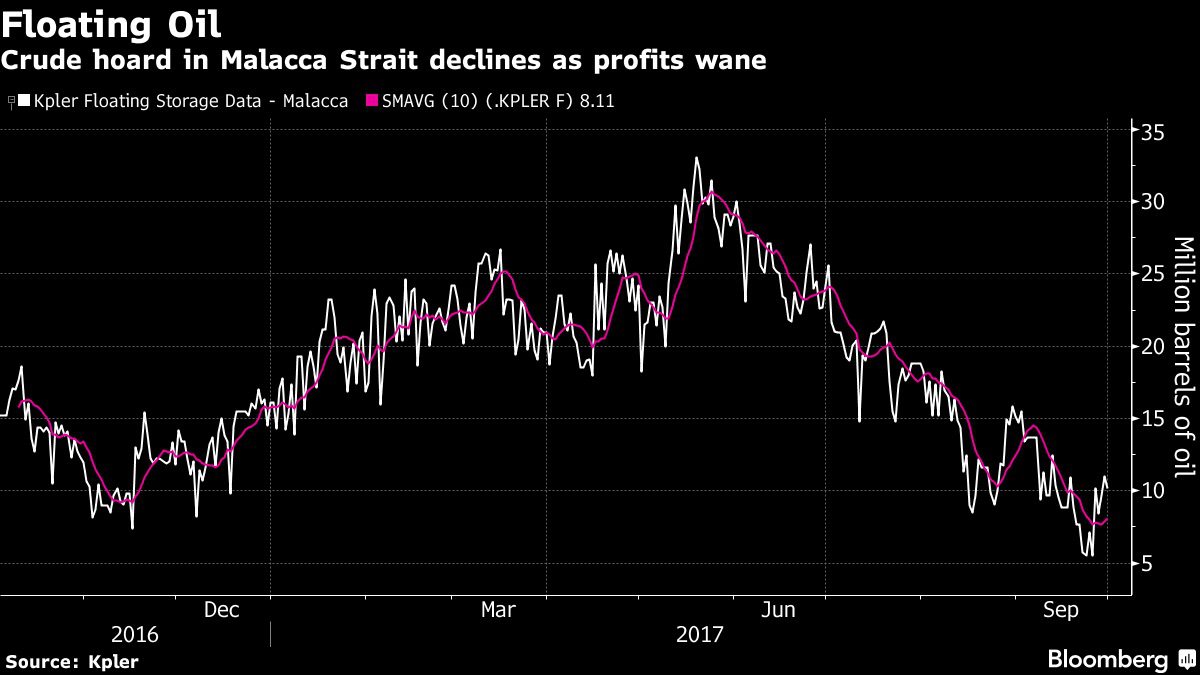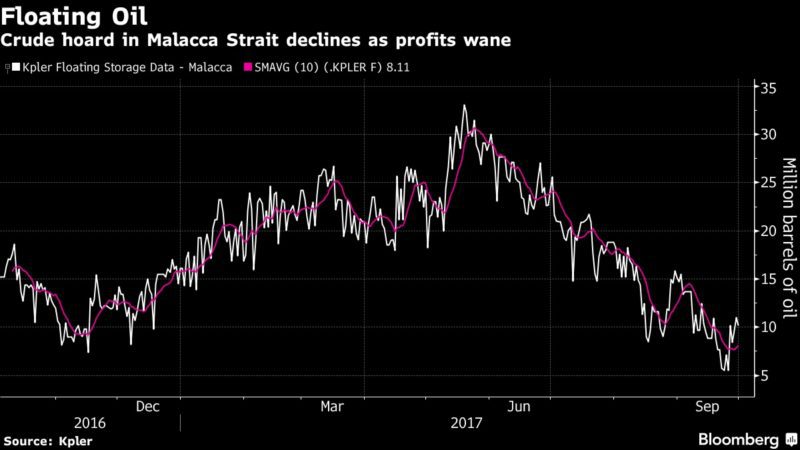US Says Russia and Ukraine Agree to Ceasefire in the Black Sea
The US said Russia and Ukraine have agreed to a ceasefire in the Black Sea and to work out mechanisms for implementing their ban on strikes against energy infrastructure.


By Serene Cheong (Bloomberg) — One of the biggest stores of oil at sea is showing signs of emptying out.
The volume of supplies held on tankers in the Strait of Malacca in September dropped to the lowest level since August 2016, according to data from cargo-tracking and intelligence company Kpler. The waters off Singapore, Malaysia and Indonesia — one of the world’s busiest shipping channels and a major hub for what’s known as floating storage — held 8.1 million barrels late last month on a 10-day moving average basis, compared with about 30 million in May.
Some traders are giving up on ships they chartered for storing oil as potential profits from future sales no longer justify the cost of hiring the vessels. That’s after the market’s structure has flipped to backwardation, where crude for later delivery is cheaper than near-term shipments, as demand improves and OPEC-led output curbs contribute to a supply squeeze. Not all are abandoning the strategy, though, with some traders still finding ways to benefit by offering tailor-made cargoes put together at sea.
Kpler defines floating storage as the volume of oil on tankers that are idled offshore for 15 or more days. The Strait of Malacca consists of anchorage areas including Pelepas, Linggi, Batu Pahat and Tanjung Bruas.
© 2017 Bloomberg L.P

Sign up for gCaptain’s newsletter and never miss an update

Subscribe to gCaptain Daily and stay informed with the latest global maritime and offshore news


Stay informed with the latest maritime and offshore news, delivered daily straight to your inbox
Essential news coupled with the finest maritime content sourced from across the globe.
Sign Up